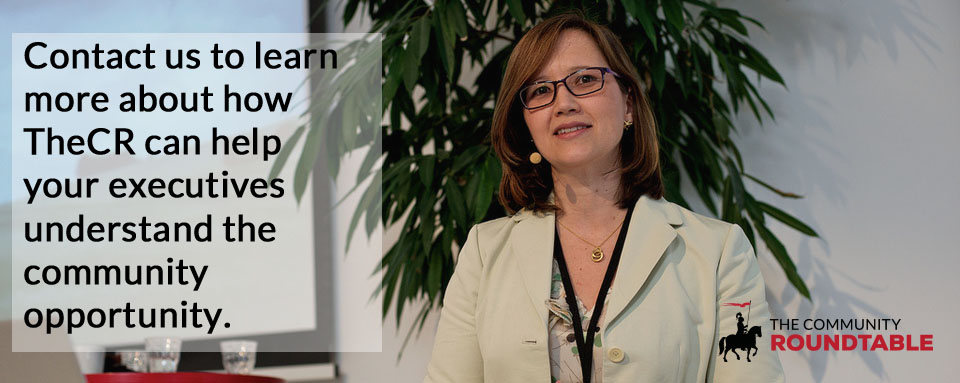 Our research shows that communities are becoming more strategic. C-level executives are often the ones approving budgets and receiving progress reports. This is fantastic progress of which all of us who work in the community space can be very proud.
Our research shows that communities are becoming more strategic. C-level executives are often the ones approving budgets and receiving progress reports. This is fantastic progress of which all of us who work in the community space can be very proud.
As communities gain strategic attention, the spotlight can shine pretty brightly.
That spotlight is great when executives understand the opportunities and risks of community approaches because it is easier to get support, advocacy and budget approval. It is not so great when executives have expectations that don’t align with how communities succeed and it can lead to significant frustration for everyone involved.
I’ve spoken with quite a few executive teams lately, reinforcing the increasing executive interest we see in our research. I really love these conversations because it gives me insight into how communities are perceived outside of the community bubble in which I spend most of my time.
The great news.
- Executives are engaged in the community topic and they are committing the time to learn more personally. It’s telling that recently I’ve spent quite a few half- and full- day sessions with multiple c-level executives. Getting on executive’s calendars is, perhaps, the biggest indicator of strategic interest because their time is their scarcest resource.
- Successful communities require more than software. The change in how community programs are executed is refreshing. For years, we have worked with organizations only after software was deployed and they realized that to make the programs successful, they needed community management. That has changed and recently we’ve been engaging organizations at the beginning of their community journey or as they start again. This trend is quite encouraging.
- Executives are allocating budget for education. While this is related to understanding the role of community management, there is also an understanding that organizations need to learn how to better engage with each other and their customers in order to optimize community value. Community managers certainly play a big role in facilitating that but executives are recognizing that every employee needs a basic degree of engagement literacy.
The work yet to do.
- Understanding that communities don’t ‘launch’. There is still a perception that communities are switched on and the primary adoption goal is to get as many people using the system as quickly as possible. This is largely due to the over-emphasis on activity metrics to judge success. Much of my work with executive teams is to help them see communities through the lens of behavior and value. That change in priorities changes how organizations develop communities – focusing first on developing behaviors and cultural norms that produce rich value and then scaling that across an organization or a customer-base. This misunderstanding is a huge risk because it sets up the organization for frustration and disappointment, which then increases pressure on the community team in all the wrong ways.
- Hiring community managers is a struggle. While there is recognition that community management is important to community success, it is still hard to allocate the budget and hire a dedicated resource. There is still ambivalence. The ambivalence comes from not understanding how the role translates to a specific environment, not having the experience to know in their gut how valuable it is, and having too many options for how to approach staffing. Add to that, the internal challenges of an environment where there are community managers with experience but not so many that it is an easy hire. While I believe all organizations should have their own dedicated community staff, this is one area where outsourcing can be helpful as the organization understands roles and responsibilities and its needs.
- Community metrics need improvement. Communities and community management is new to most executives so when they see community reports, they often don’t know how to evaluate them critically. They take what their community teams or their software gives them. From what I see, those reports do not always help executives make good decisions – but those same executives don’t have the experience to know what to ask for or where there are gaps in data. Community managers are not necessarily strong analysts so they too often use what they have easy access to. Given the gaps in knowledge, it is hard to develop community metrics that provide real decision-making insight.
We are at an inflection point. Executives believe in community and community management. Not all executives but many. We no longer need to spend as much time talking about why. We now have the hardest work ahead of us: showing executives how to build successful communities and demonstrating results that validate their belief.
What kinds of questions are your executives asking?

